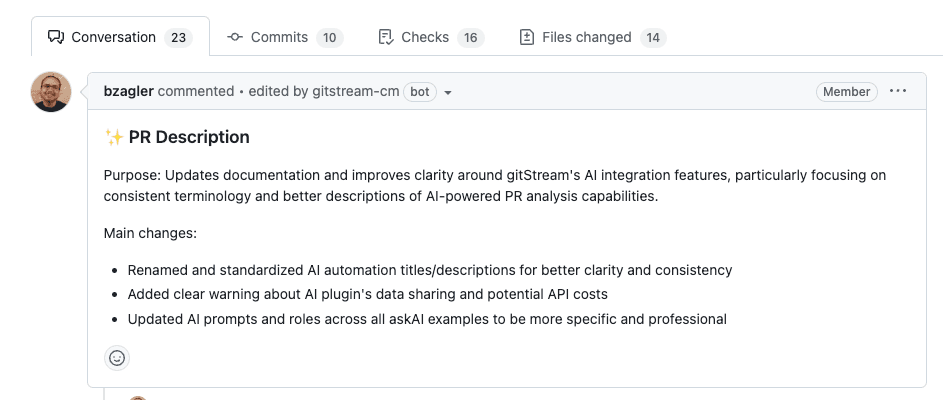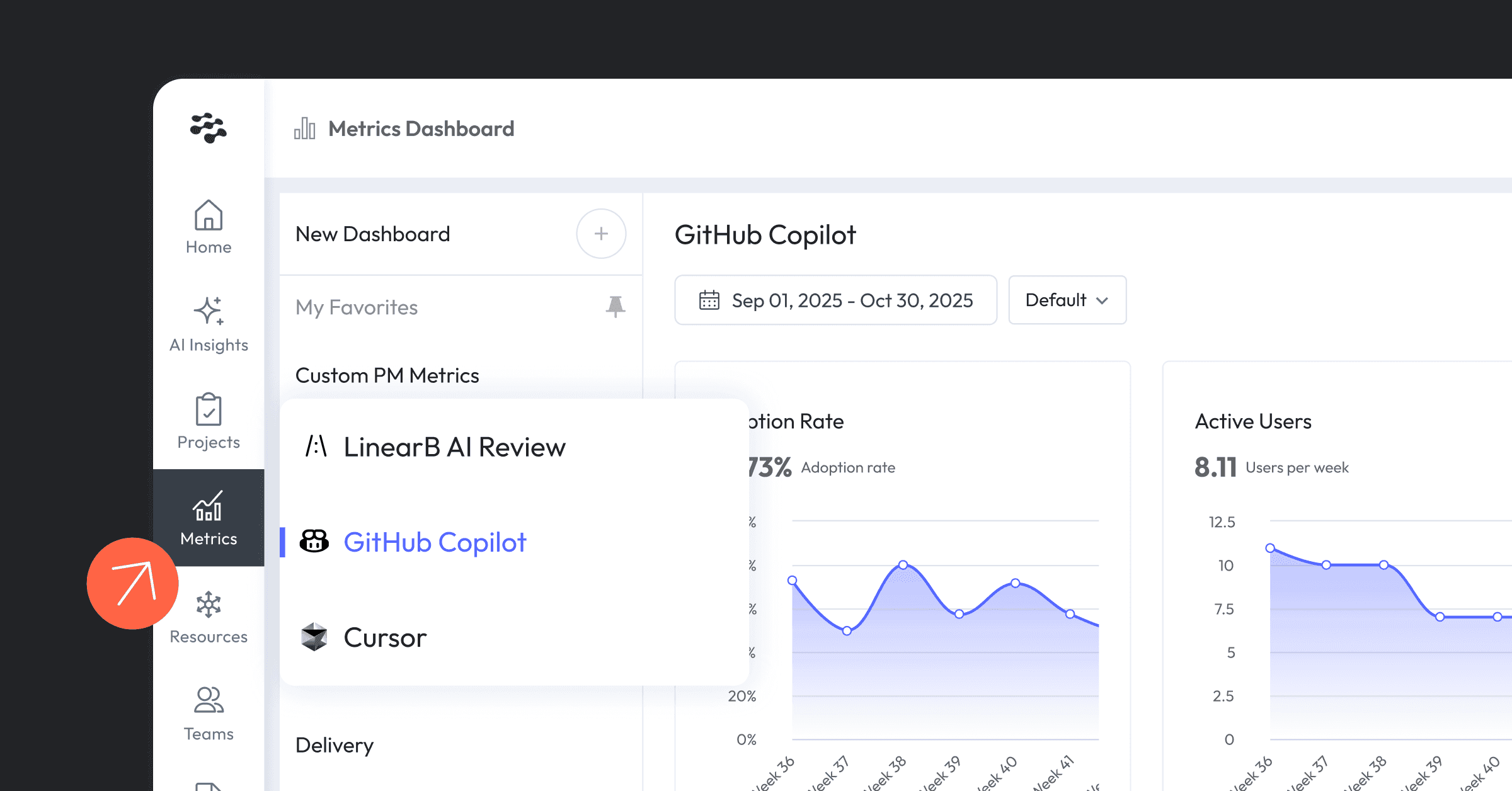One typical conversation we have with engineering leaders is about the role of generative AI in improving engineering productivity. While AI presents exciting opportunities to streamline development, organizations must ensure that code quality, security, and compliance requirements remain uncompromised. At LinearB, we’re committed to helping our community navigate this challenge effectively.
We’re announcing new AI-powered capabilities via LinearB AI, a workflow automation tool designed to optimize your code review process.
How LinearB AI Improves Code Reviews
LinearB AI helps developers and teams work more efficiently by:
- Adding contextual insights to PRs
- Identifying and assigning the right code experts for reviews
- Automating merge processes to reduce bottlenecks and maximize developer productivity
A significant focus of LinearB AI's evolution is integration with an extensive developer tools and services ecosystem. We aim to enhance human-to-human and human-to-machine interactions in the code review process. Now, we're taking this mission a step further with generative AI.
Bringing AI into Code Review
LinearB now directly integrates with generative AI platforms, allowing teams to apply AI-driven workflows to their code review process. We’re actively exploring innovative ways AI can enhance code reviews, including:
- Adding more context to PRs
- Providing practical guidance on improving submitted code
- Making recommendations for unit tests
Introducing Automatic PR Descriptions
The first native AI capability we’re launching is automatic PR descriptions. With this feature, LinearB AI can now generate a summary of code changes directly in the PR description, reducing or eliminating the need for developers to write them manually.

PR descriptions are among the first pieces of information developers encounter during a review. Clear, concise, and accurate descriptions reduce cognitive load, allowing reviewers to focus on the code itself. By automating this step, teams can reduce repetitive tasks, saving minutes on every single PR; this time quickly adds up across teams and organizations.
AI Code Reviews
Code reviews, while essential for maintaining code quality, are often inefficient and error-prone. Human reviewers are limited by time, cognitive load, and biases, leading to inconsistencies in feedback. They might focus too much on style issues while missing more profound architectural flaws or security vulnerabilities.
Additionally, long review cycles slow down development, with PRs sitting idle as engineers juggle multiple priorities. This inefficiency not only increases lead time but also contributes to review fatigue, where critical issues may slip through simply because reviewers are rushing to get through a backlog of pull requests.
LinearB AI can lift this burden by providing automatic code reviews for all of your PRs.
![Automated PR review suggestion from LinearB AI via gitStream, highlighting a bug in a Python file. The issue involves unsafe type coercion with astype(str), applied inconsistently across different DataFrames. The suggested fix ensures proper column reference and consistent string conversion. The review includes a code snippet with a corrected assignment for df_issues_summaries["issue_provider_id"]. Enhancing code quality and reducing errors in data processing workflows](https://assets.linearb.io/image/upload/v1740677729/git_Stream_AI_code_review_84a71b56e5.png)
By integrating AI-powered code review as the first line of defense, teams can drastically improve efficiency and accuracy. AI can instantly flag common mistakes, enforce best practices, and highlight potential security risks before a human looks at the code. This allows engineers to receive immediate feedback and fix issues early, reducing the burden on human reviewers.
Instead of wasting time on minor issues, human reviewers can focus on higher-level concerns like architecture, business logic, and edge cases. The result is a more consistent, streamlined review process that accelerates delivery while maintaining code quality.
The Future of AI-Driven Code Review
This is just the beginning. As we continue enhancing LinearB AI's AI capabilities, we're eager to hear from our community on the most valuable use cases. Our mission is to ensure AI-driven workflows improve productivity while keeping teams in control of their development process.
Ready to bring AI into your code review process? Head over to the LinearB docs to get started, or set up a meeting with one of our workflow automation experts to learn more about applying AI workflows to your code review process.
Watch our demo below to see the AI Code Review feature at work:




